What Makes a Good Pig Caretaker?
posted on Friday, March 1, 2019
Farming is known to be both a highly demanding, yet highly rewarding career. In fact, a recent Superbowl ad featuring Paul Harvey’s Carter-era address at the National FFA Organization Convention struck a chord with farmers, especially those who care for livestock.
“God said, ‘I need somebody strong enough to clear trees and heave bails, yet gentle enough to tame lambs and wean pigs and tend the pink-combed pullets, who will stop his mower for an hour to splint the broken leg of a meadow lark.’”—Paul Harvey
But what makes a great livestock farmer—or a great pig caretaker? Like any job, livestock care requires a special set of skills and qualities. Some traits come naturally and others are gained through experience. We asked ten of our own farmers what they think make the best traits for the job.
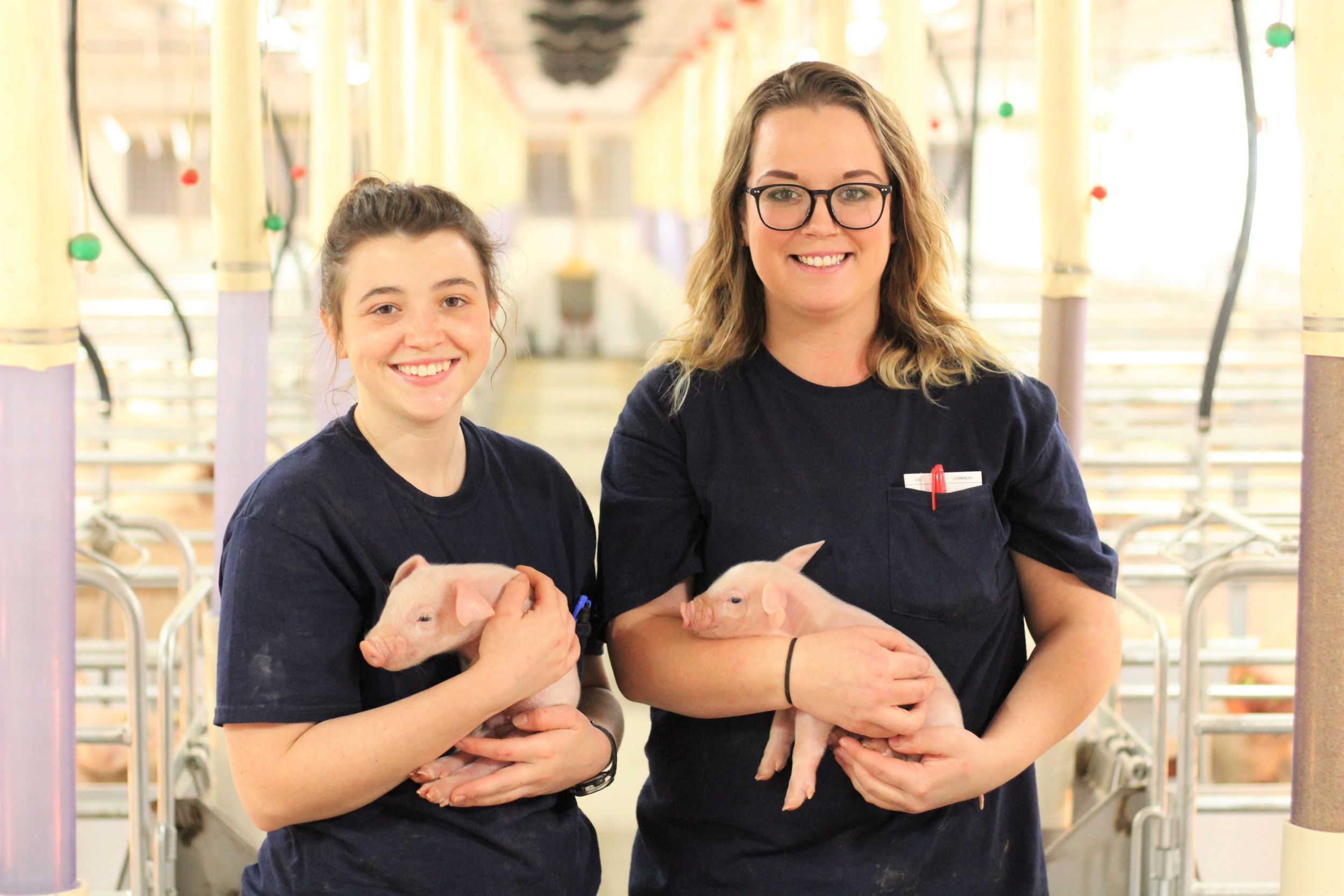 #1 Observe and act
#1 Observe and act
Megan Foster (pictured right), a farrowing department head who lives near Allerton, says having a critical eye and being assertive helps her team provide great care to the sows and their newborn piglets. “Pigs can’t talk, so we have to watch and observe them closely every day,” said Megan. “If something doesn’t look or feel right to us, we act on it.”
She and her team assess and record animal body condition, food consumption and behavioral signs that may indicate illness. Time is of the essence for Megan and her team of newborn pig specialists. They are trained to intervene quickly when piglets aren’t suckling colostrum or can’t find their way to the warm spots on mats and under heat lamps.
“Minutes, even seconds, matter,” said Megan. “We do everything in our power to help pigs thrive on our farm.”
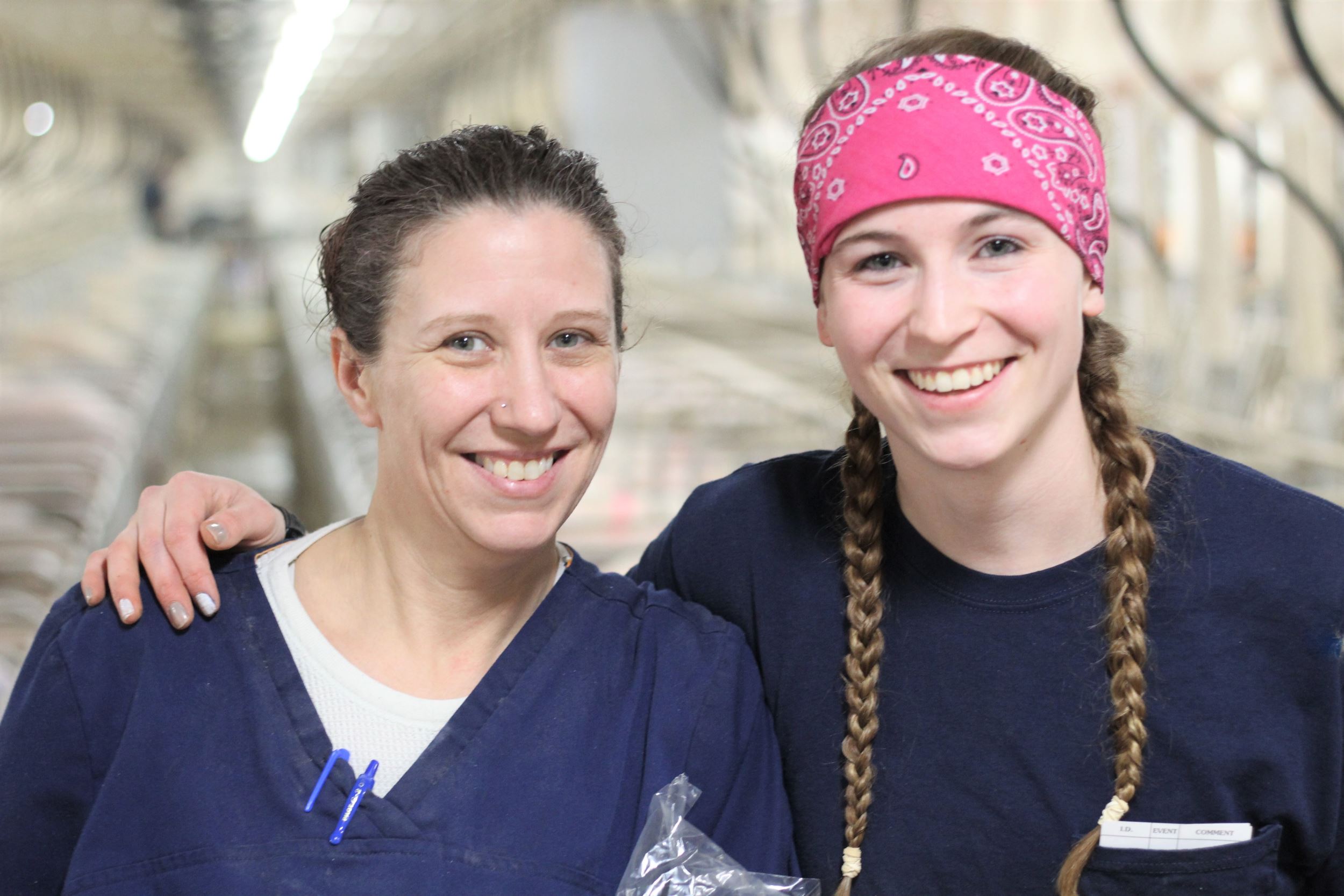 #2 Have a solid mastery of animal science
#2 Have a solid mastery of animal science
According to a recent Iowa State University Animal Science graduate, Rachael Waters (pictured right), now a breeding department head at Elmand Sow Farm near Chester, proficiency in their field is extremely important.
As an animal caretaker, competence includes a thorough understanding of swine nutrition, reproductive sciences, animal behavior, and even a little bit of engineering. She also said caretakers need to understand the importance of charting data, much like human health care professionals.
“Accurate recordkeeping and analyzing numbers is a huge part of our job,” said Rachael. “A critical component of our commitment to animal care lies in the transparency and accuracy of our farm records—our veterinarians and support teams are helping to monitor health and make sure the animals are getting what they need.”
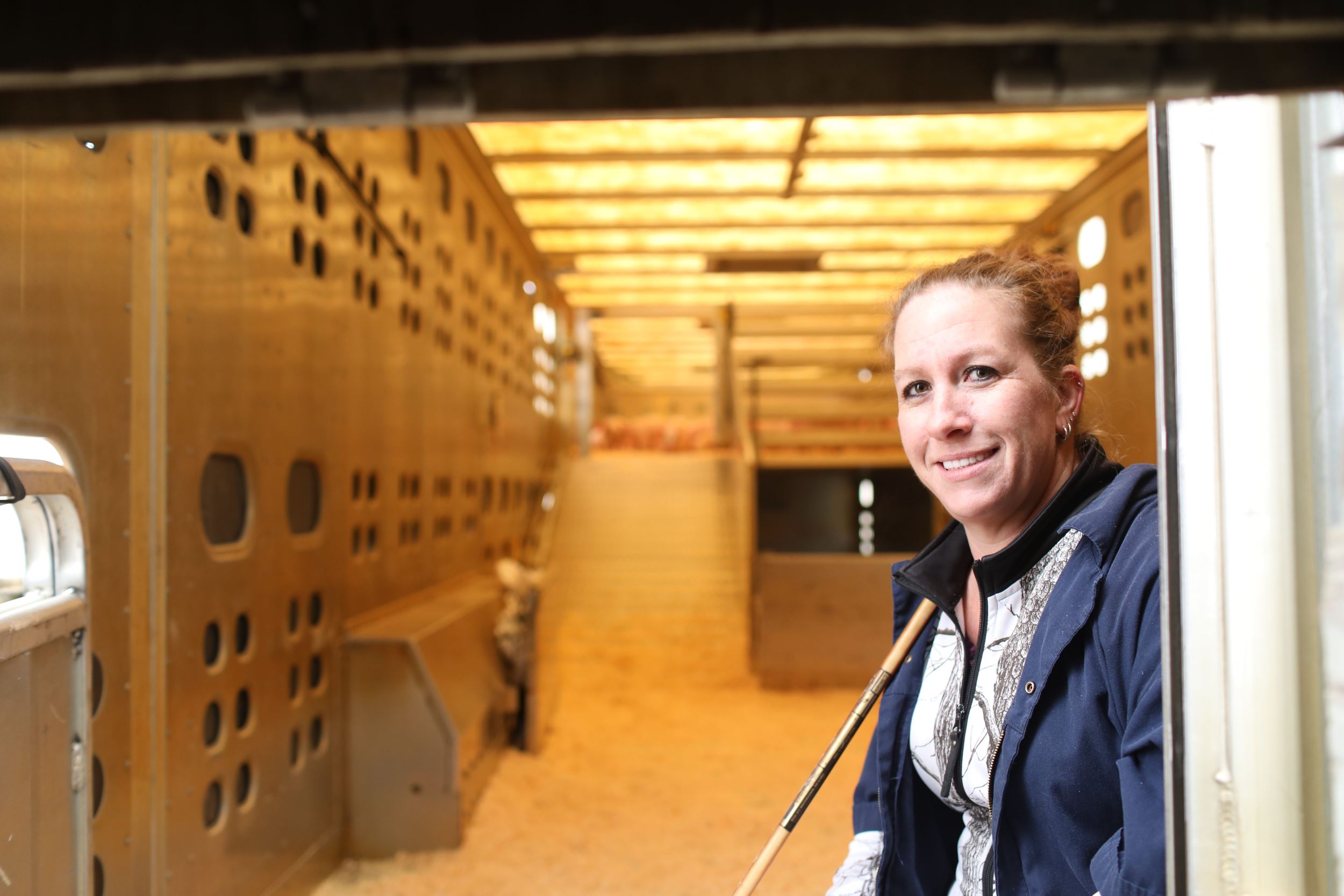 #3 Communicate early and often
#3 Communicate early and often
As a wean pig hauler in central Iowa, Crystal Rehm says good communication leads to great pig care. Her dispatch team sets the schedules that go out to farms but the drivers also make extra communication a habit. “I’m always calling my managers to let them know if I’m early or running late on my loads.”
Sow farm managers carry cell phones as they work inside the barns, plus technology programmed into the company intranet deploys an extra layer of alerts to the farm. The miles—and minutes—a driver is away from arriving at the farm is displayed on the computer in the farm’s office.
“We keep in close contact with teams at the sow farm as we are approaching, which gives them time to get organized and move the wean pigs,” said Crystal. After loading, Crystal and her logistics team keep the communication going, alerting the manager at the finisher farm that she’s on her way.
Advance notice and plenty of planning and preparation helps everyone get ready for unloading and caring for their new pigs.
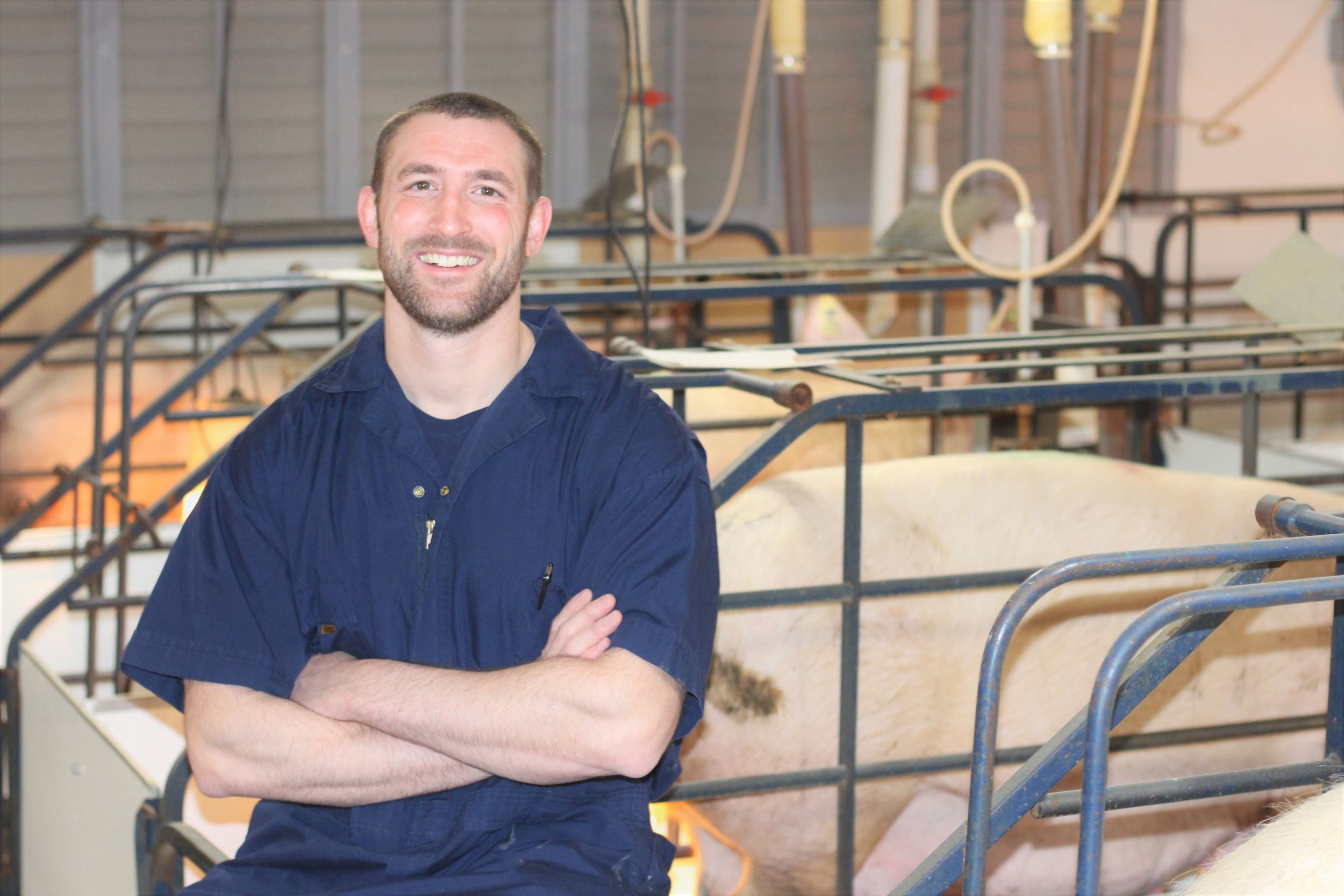 #4 Be a lifelong learner
#4 Be a lifelong learner
Iowa Select Farms Health Services Director Pete Thomas, DVM, says a desire to learn is an important quality for any animal caretaker, especially veterinarians. “I’ve been in this business for two decades and I am still learning something new every day,” said Dr. Thomas. “Things we never thought we could do 10 years ago we are now trying, like filtering our farms to improve biosecurity and adopting new technologies to keep pigs healthy and promote animal well-being.”
Dr. Thomas says there is a teamwork approach to health and care on the farms. “It’s not left on one person—it’s the responsibility of many. Our team of six veterinarians here at Iowa Select Farms work with our farm teams to review records and provide treatment plans to ensure the health of our animals.”
He also says research and continuous improvement is a big part of the company’s culture. “At any given time we have 10-12 research trials going, many in coordination with Iowa State University. We’re constantly learning and trying to improve the health, care and biosecurity protections for our pigs.”
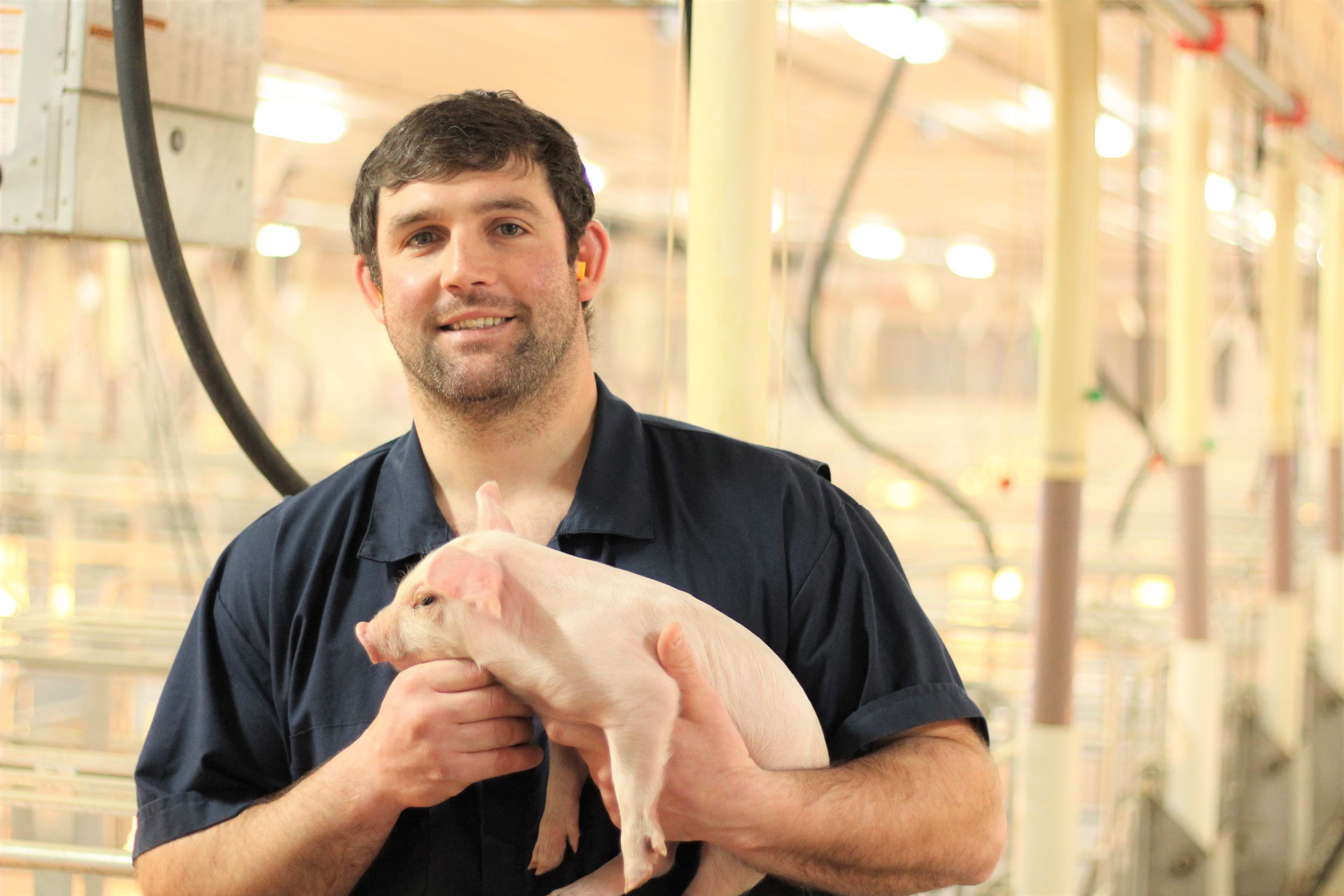 #5 Be a problem solver
#5 Be a problem solver
Since starting his career with Iowa Select Farms as an intern in 2006, Smyrna Sow Farm Manager Adam Swalla – Clarke County – has learned that just like any farmer, good pig caretakers are quick thinkers and problem solvers.
“We wear a lot of different hats when we’re on-farm,” Adam said. “Some days we’re also maintenance techs and IT specialists. Properly running HVAC systems and data flow is as important to animal care as choring a barn. Anything that is a biosecurity breach is a 911 in our book. Being able to get to the root of a problem, develop a plan to overcome and execute is something that our employees do daily all in the name of caring for our animals.”
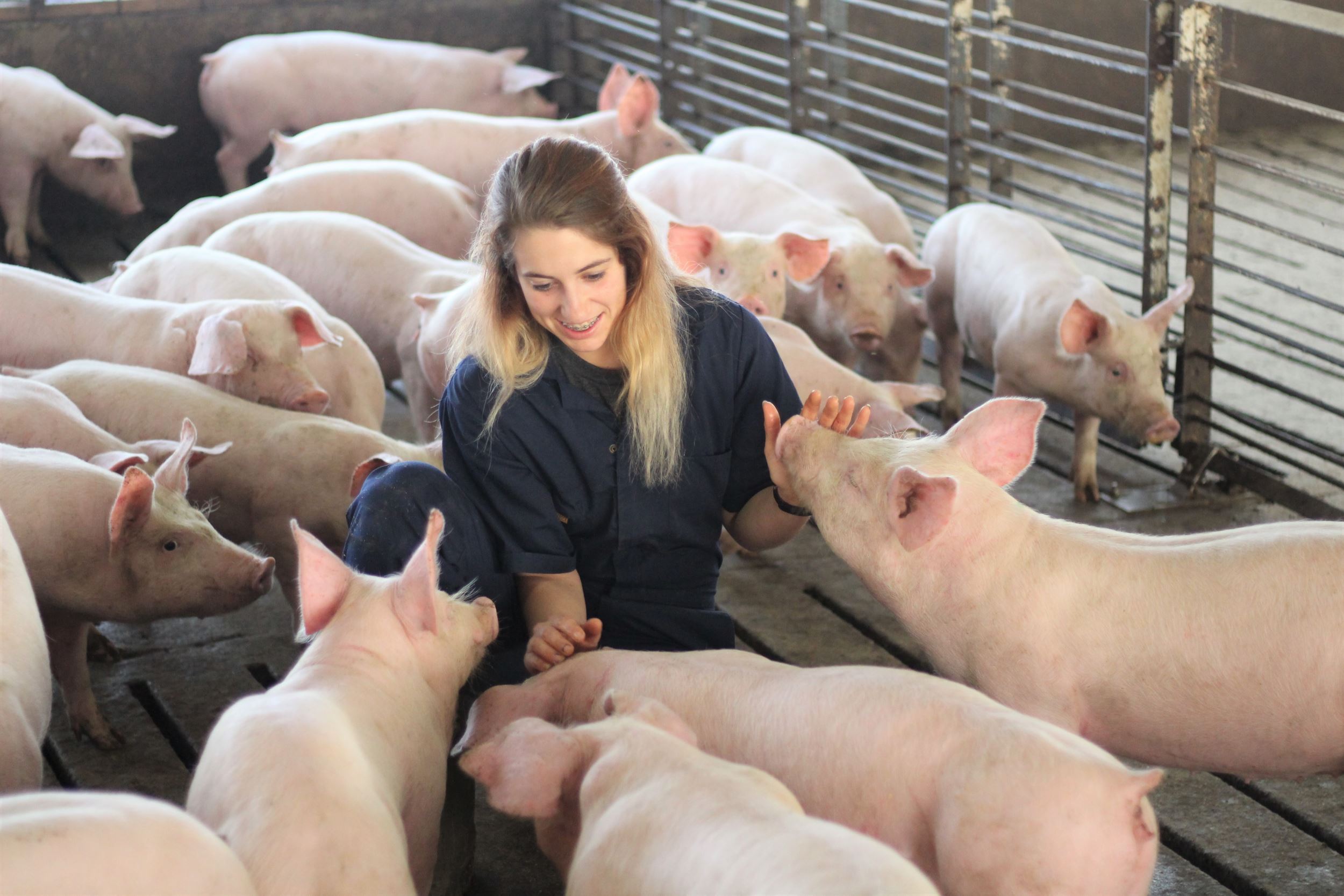 #6 Practice patience
#6 Practice patience
As a gilt selection specialist, Courtney Fosterspends her days in Union, Clarke, Ringgold and Taylor Counties, selecting the highest quality animals to enter the Iowa Select Farms’ sow herd—a meticulous task that requires practice and patience.
“When you’re working with animals, you realize sometimes they don’t always have the same agenda as you, especially during loading and unloading,” she joked. “Allow for extra time, and if they aren’t moving the way you want, take a break. Regroup and try again. The animals can sense when we’re frustrated, so having patience is important.”
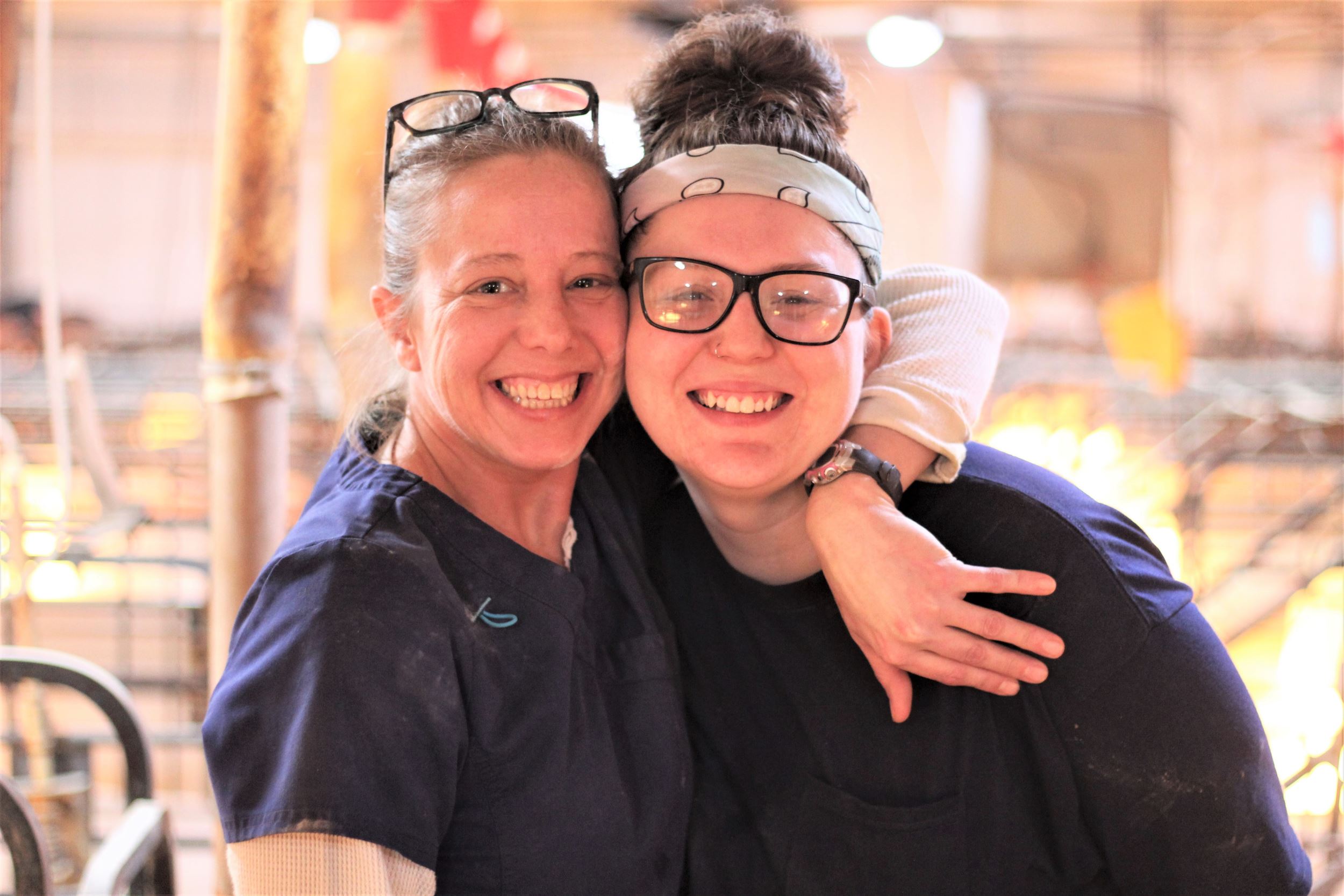 #7 Find your happy place
#7 Find your happy place
Newborn Pig Specialist Sandra Janowski (pictured left) and Assistant Farrowing Head Sarah Shlachter (pictured right) at Rout Sow Farm in Wright County say having fun at work is a must-do.
“You have to stay positive and attack the day as a team, because there will be days you’ll need lifted up, and there will be days your friends will need you,” said Sarah. “Nothing about pig care is easy. There are days when we are soaked from power washing, and there are days we are covered in placenta. You have to stay positive and focused on what you’re there to do—care for these animals.”
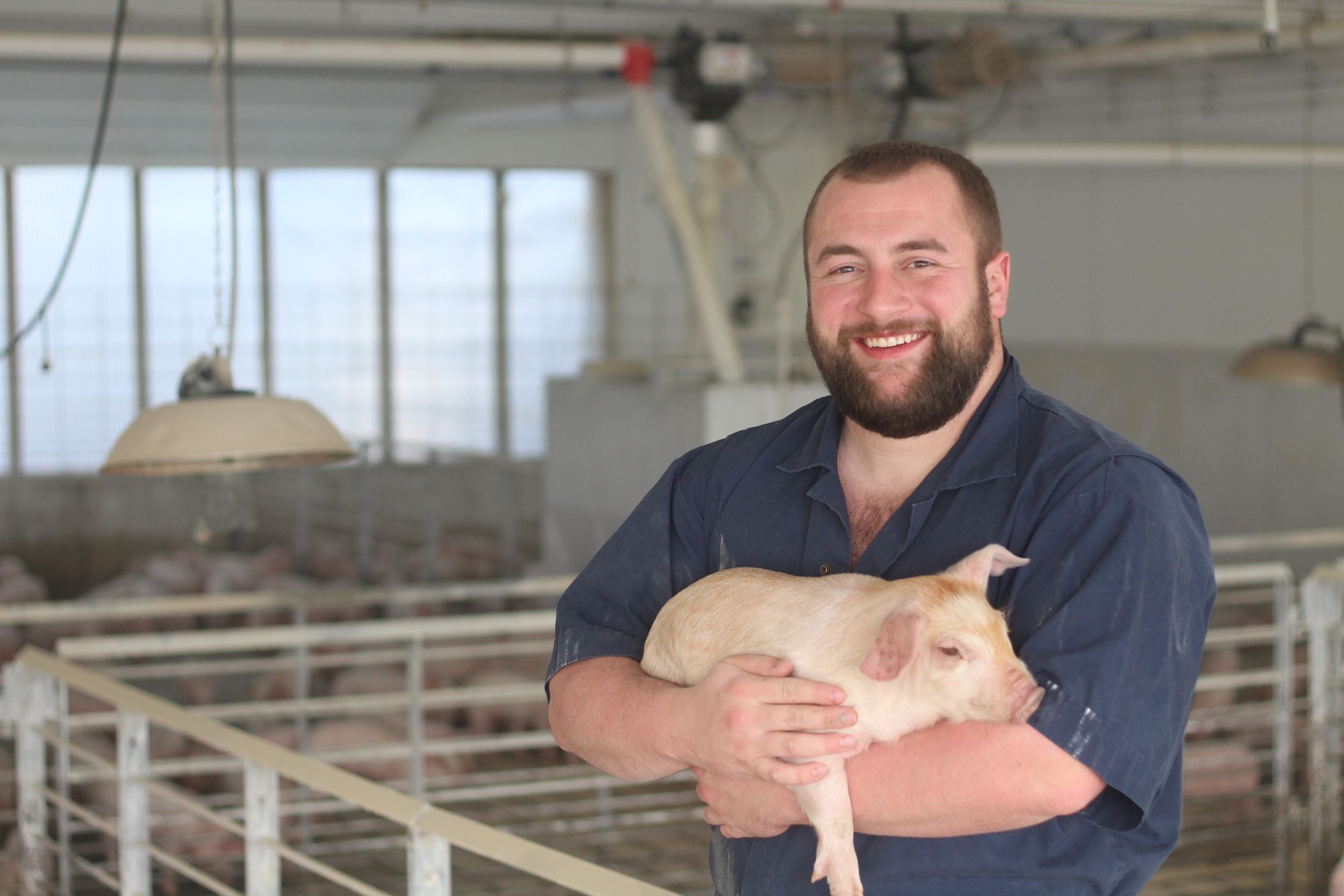 #8 Take ownership, always
#8 Take ownership, always
Chawn McGrath oversees several finisher farms in Mitchell and Howard County and spends his days supporting contract growers as they care for pigs from three weeks old to market weight. He says the best thing any caretaker can do is have ownership of everything that happens on their farm.
“The farmers I work with, it’s their livelihoods, it’s all of our livelihoods,” he said. “It means that my growers are standing up and saying ‘I am accountable’ for the pigs on my farm, and that I personally am also accountable as their supervisor.” Chawn says barn set up, loading, unloading, vaccinating, nutrient management, equipment repairs—everything needs seen through.
"It's not only the pigs we take ownership in," Chawn continued. "The appearance and maintenance to the outside of our farms matter just as much as the inside. Every piece of the farm is a reflection of the caretakers."
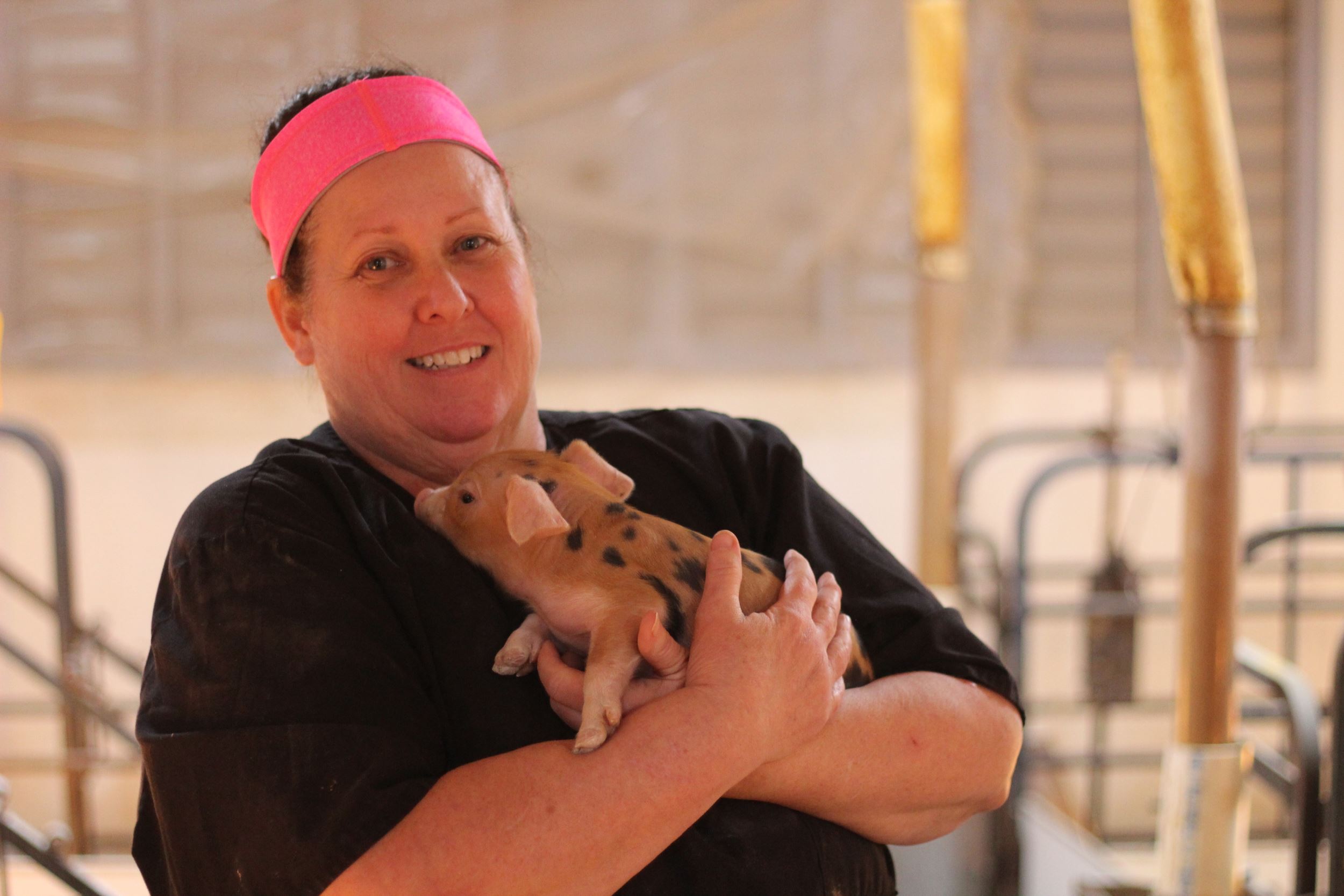 #9 Have a teamwork approach
#9 Have a teamwork approach
In her decades working with pigs, Sow Farm Manager Roberta Weide – near Dows – has noticed the ability to coordinate with co-workers as the utmost importance. “Weekends, holidays or snowstorms, we have to cover all of the work no matter what the circumstance, even if it means spending the night at the farm,” said Roberta.
Weide says during recent snowstorms, the team stayed in close contact, making sure the pigs had feed, heat, water and that caretakers were there to help tend to litters. “In fact, the pigs didn’t know that half of us couldn’t get to the farm, and the other half couldn’t get out of the farm,” laughed Roberta.
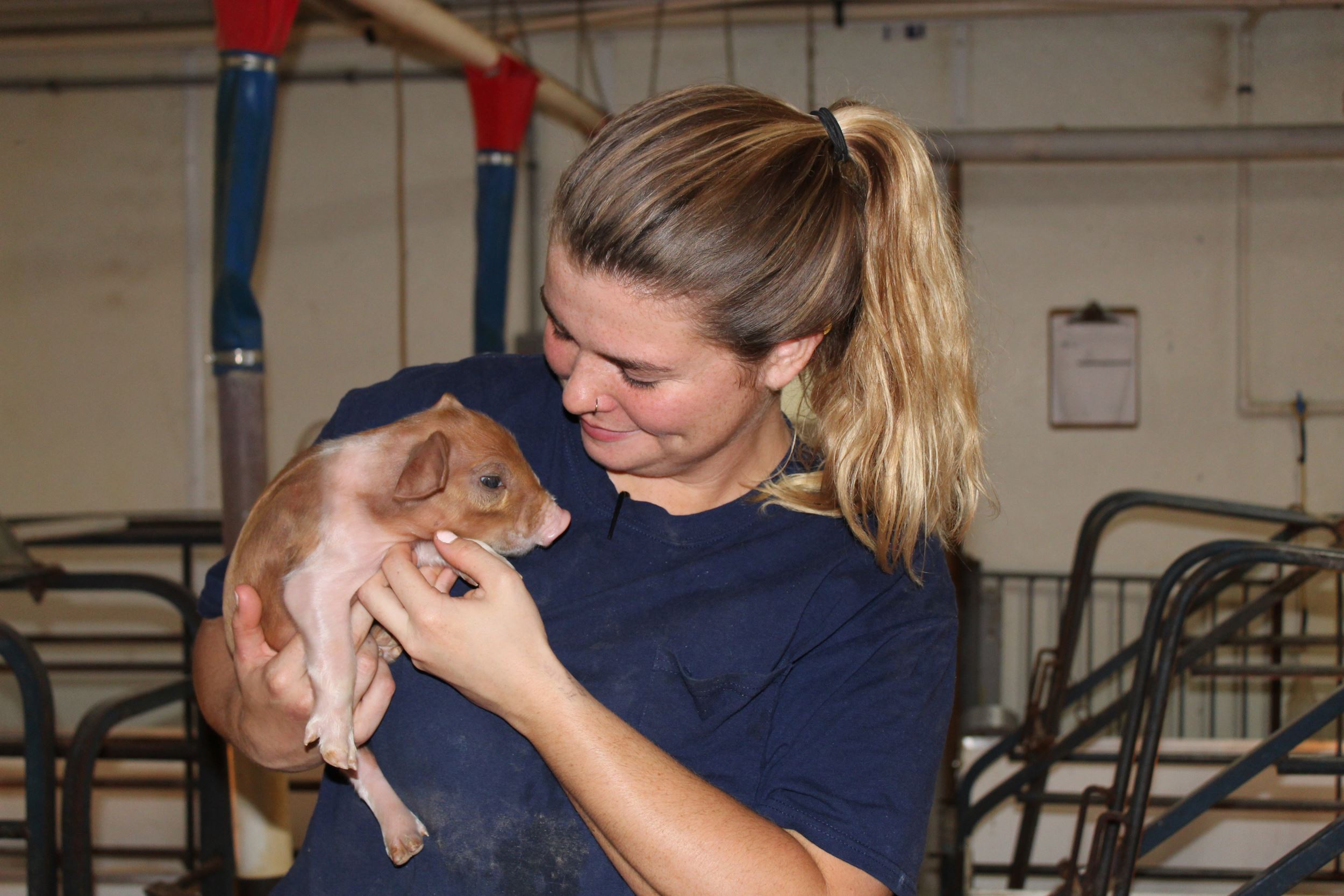 #10 Fall in love with your job
#10 Fall in love with your job
Jacobson Sow Farm Farrowing Department Head Jesse Lee, from Ames, says you should always follow what brings you joy. An avid animal lover, Jesse enjoys being around all creatures, great and small. “I love taking care of animals, especially pigs,” said Jesse. She says her team is passionate about making a difference and helping the piglets get off to a solid start.
“The team shows up to work excited, ready to get out to the barns and see what came in for litters overnight,” said Jesse.
Jesse’s dad, Mark, also works for Iowa Select Farms as a sow supervisor. She says his love for livestock farming was contagious. She reflected, “I guess you could say, ‘like father, like daughter’. We talk about our farms all the time. It’s a family affair.”
#HomegrownIowa
Subscribe to our newsletter: Get fresh articles delivered straight to your inbox.
Subscribe